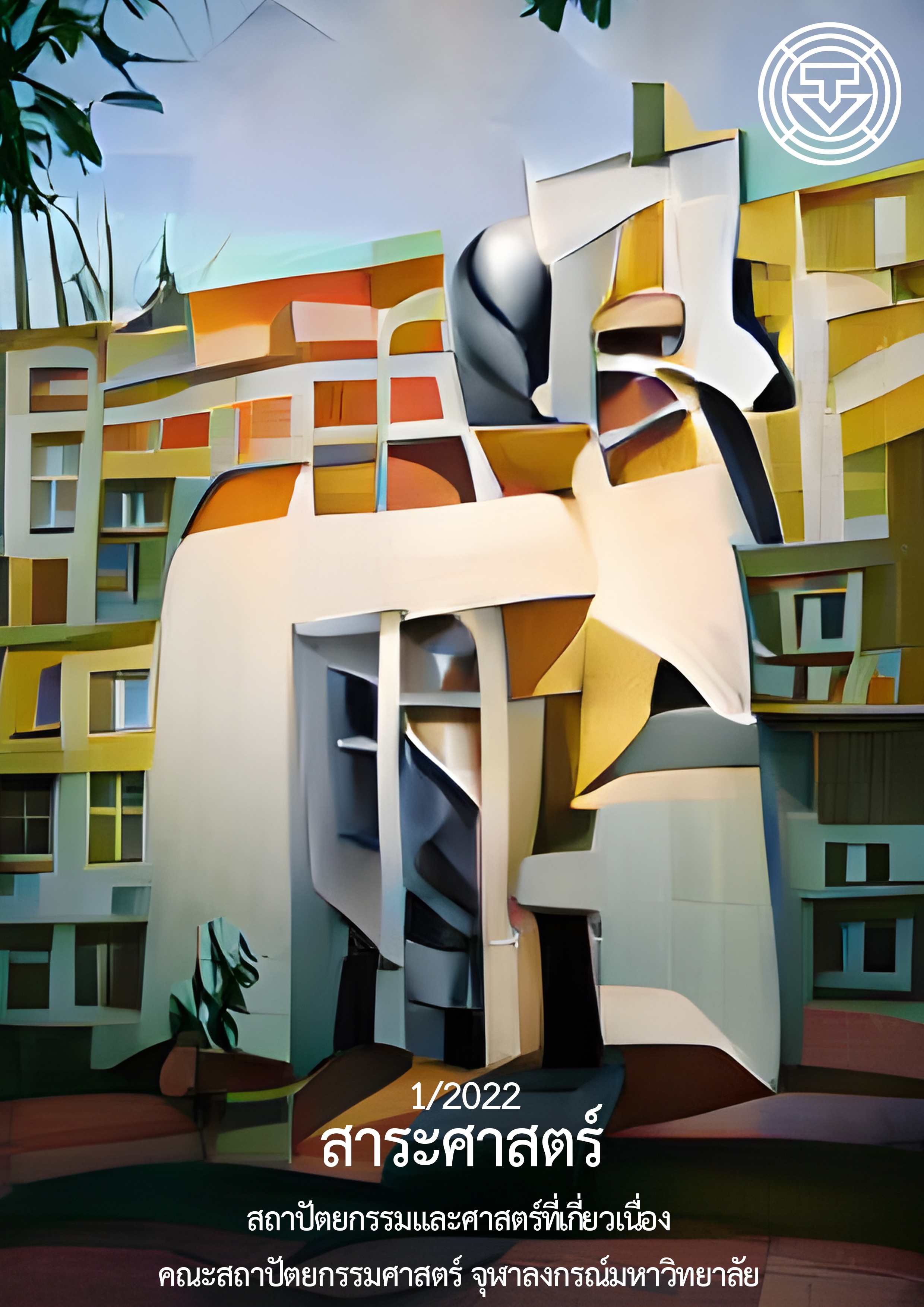An Opportunity and Limitation of the Medical Hub Management : The Case Study of Thammasat Integrated Medical Innovation Center (EECmd) and The Phuket Health Tourism Enhancement to the World-Class Health Tourism City Project.
Main Article Content
Abstract
Thailand has the policy to elevate the country by adjusting the economy structures, aiming to add more products value to the 12 targeted industries which are promoted into the advanced technology. This objective will help to drive the future economy by developing investment promotion plans such as investment promotion measure, infrastructure and utility development plans. The Medical Hub is the one of the targeted industries which is related the fact that the development of the technology could maintain the quality of human life to live longer. Also, Thailand is the well-known destination of travelers and medical tourists due to the advantage of the price, good service ,and the quality of personnel, especially the alternative medicine and medical rehabilitation. This could be the comprehensive medical industry and might be the high trend of the future investment.
At present, the government, led by the Ministry of Public Health, has been announced the strategic plans to develop Thailand into an international medical hub. As the result of the above-mentioned strategies, they could contribute to the development of various related projects, including the development of comprehensive medical hub in the potential areas and give the service to the target groups same as the case study in Thammasat Integrated Medical Innovation Center (EECmd) and The Phuket Health Tourism Enhancement to the World-Class Health Tourism City Project.
From the information above, this could lead to study the opportunities and limitations of the development of the medical hub by studying the information, theories, research papers and project guideline of both case studies to analyze the locations. Moreover, to study the government policies, laws and regulation to analyze the data and combined with in-depth interviews of the people who are in charged of medical hub, real estate investment, law and regulation to support the area development. The results of this study shows that the implementation of the medical hub need the factors to support such as the location and the infrastructure like the educational institution and the hospitals that provide the medical treatment, the area that could access to tourist attractions through health tourism. In addition, legal factors, such as investment promotion measures and urban planning are also the key factors. In the implementation of large-scale projects, cooperation between the government and the private sectors are necessary. This will help to drive entrepreneurs and governments sectors to invest in infrastructure and manage limitations to incentivize the investors and academic groups including the qualified personnel who are supporting the service in the area.
Article Details
References
กรมสนับสนุนบริการทางการแพทย์. (2561.) สืบค้นเมื่อ 5 เมษายน 2564, จาก www.thailandmedicalhub.net/
กระทรวงสาธารณสุข. กรมสนับสนุนบริการสุขภาพ. กองสุขภาพระหว่างประเทศ. (2556). รายงานสรุปผลการดำเนินงานตาม นโยบายการพัฒนาประเทศไทยให้เป็นศูนย์กลางสุขภาพนานาชาติ (Medical Hub) ปีงบประมาณ พ.ศ. 2556. สืบค้นเมื่อ 30 เมษายน 2564, จาก https://www.hss.moph.go.th/fileupload_doc/2017-12-18-1-17-37017762.pdf
กระทรวงสาธารณสุข. กรมสนับสนุนบริการสุขภาพ. กองสุขภาพระหว่างประเทศ. (2563). รายงานผลการวิจัยและสำรวจข้อมูลด้านบริการสุขภาพและบริการเพื่อส่งเสริมสุขภาพของไทยประกอบการจัดทำศูนย์ข้อมูลรองรับนโยบาย (Medical Hub)
Joint commission international. (2564). สืบค้นเมื่อ 30 เมษายน 2564, จาก https://www.jointcommissioninternational.org/about-jci/accredited-organizations/
ไทยโพสต์. (2563). เอาแน่!ภูเก็ตเตรียมชงโครงการเมดิคอลพลาซ่าวงเงินเฉียด3พันล้านเข้าครม.สัญจร 3 พ.ย.นี้. สืบค้นเมื่อ 30 เมษายน 2564, จาก https://www.thaipost.net/main/detail/80432
ธรรมรัตน์ มะโรหบุตร. (2561, กรกฎาคม-ธันวาคม). ยุทธศาสตร์นโยบายการเป็นศูนย์กลางทางการแพทย์ (Medical Hub) กับสถานการณ์ที่สะท้อนผลกระทบต่อระบบสุขภาพของประเทศไทย. วารสารคุณภาพชีวิตกับกฎหมาย, 14(2), 27-41.
นฤมล รัตนไพจิตร, ราตรี เขียวรอด และ ตรีวนันท์ เนื่องอุทัย. (2561). ปัจจัยที่มีอิทธิพลต่อพฤติกรรมการท่องเที่ยวเชิงสุขภาพของผู้สูงอายุจังหวัดนครศรีธรรมราช. สืบค้นเมื่อ 30 มิถุนายน 2564, จาก https://www.boi.go.th/un/Policy_EEC
ประชาชาติธุรกิจ. (2563). รพ.วชิระภูเก็ต ชงรัฐขอ 3 พันล้าน ลุย Medical Tourism ระดับเวิลด์คลาส. สืบค้นเมื่อ 30 เมษายน 2564, จาก https://www.prachachat.net/tourism/news-637790
ประชาชาติธุรกิจ. (2564). เปิดประเทศกู้ชีพจรเศรษฐกิจ 6 เมืองท่องเที่ยวเฮ-ทะลักภูเก็ต. สืบค้นเมื่อ 30 เมษายน 2564, จาก https://www.prachachat.net/tourism/news-637790
มหาวิทยาลัยธรรมศาสตร์. (2561). รายงานการศึกษาความเหมาะสม (Feasibility Study) เขตส่งเสริมเศรษฐกิจพิเศษ การแพทย์ครบวงจร (EECmd) ธรรมศาสตร์พัทยา. สืบค้นเมื่อ 20 มิถุนายน 2564, จาก https://www.eeco.or.th/web-upload/filecenter/html/promotion-area/03-3.pdf
รัฐบาลไทย. (2563). สธ. รับมอบที่ราชพัสดุ “ยกระดับการท่องเที่ยวเชิงสุขภาพจังหวัดภูเก็ต สู่เมืองท่องเที่ยวเชิงสุขภาพระดับโลก. สืบค้นเมื่อ 30 เมษายน 2564, จาก https://www.thaigov.go.th/news/contents/details/37274
รัฐพล สันสน, อมรรัตน์ ศรีวาณัติ, มณฑิกานต์ เอี่ยมโซ้ และ สิริกุล ประเสริฐสมบูรณ์. (2561, มกราคม-มิถุนายน). การวิเคราะห์ความต้องการและปัจจัยการตลาดเพื่อส่งเสริมการท่องเที่ยวเชิงการแพทย์และสุขภาพของประเทศไทยสู่การเป็นศูนย์กลางบริการสุขภาพนานาชาติ. วารสารบริหารธุรกิจศรีนครินทรวิโรฒ, 9(1), 87-100.
สำนักงานคณะกรรมการส่งเสริมการลงทุน. (2563). มาตรการส่งเสริมการลงทุน. สืบค้นจาก https://www.boui.go.th
สำนักงานส่งเสริมการจัดประชุมและนิทรรศการ (องค์การมหาชน). (2561). Thailand's MICE Industry Report Medical Hub. สืบค้นเมื่อ 5 เมษายน 2564, จาก https://healthserv.net/8007
อรสุธี มูลละ. (2555). แรงจูงใจของนักท่องเที่ยวนานาชาติเพื่อการท่องเที่ยวเชิงสุขภาพในกรุงเทพมหานคร. (วิทยานิพนธ์ปริญญามหาบัณฑิต, จุฬาลงกรณ์มหาวิทยาลัย).


